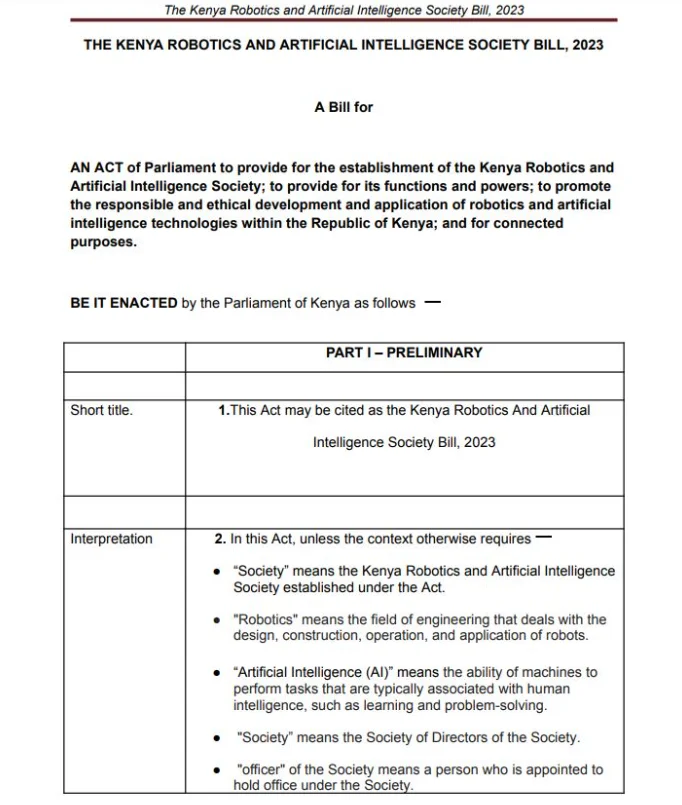Information technology (IT) experts in Kenya have strongly advised the parliament to disregard the 2023 Robotics and Artificial Intelligence (AI) Society Bill because of its manifold deficiencies.

As per reports from local media, the Communication, Information, and Innovation Committee of the National Assembly convened a session to commemorate International Safer Internet Day in 2024.
During the session, committee members were reportedly apprised by stakeholders that no robotics and artificial intelligence (AI) experts participated in any stage of the bill drafting procedure.
According to the legislation, a failure to register robotics and artificial intelligence ventures with the Robotics Society of Kenya (RSK) renders an organization or organization unlicensed.

Non-registering unlicensed entities engaged in the operation of robotic and AI enterprises would be subject to penalties under the proposed legislation, which may consist of fines of up to one million Kenyan shillings ($6,269), a possible two-year prison term, or both.
Regulatory oversight and promotion of the advancements in the robotics and AI industries are the objectives of the RSK. It aims to foster conformance among businesses by establishing rules and guidelines with other governing bodies. In addition, the RSK will advise the government on emergent developments in robotics and artificial intelligence.
According to reports, during the meeting, Alex Gakuru, the head of the American Chamber of Commerce in Kenya and director of the Center for Law in Information Technology, advocated for the bill’s withdrawal pending further stakeholder consultation. Gakuru further pointed out that if passed in its current state, the bill would trigger a catastrophic national crisis.
In contrast to adequately addressing AI concerns, the bill focuses predominantly on regulating the robotics industry, according to Gakuru. According to him, unless amended, the poorly drafted law could face legal challenges.
Kenya has achieved the fifth rank in Africa regarding preparedness to integrate artificial intelligence (AI) into its public service delivery system. Kenya secured the 40.36 percent spot on the 2022 edition of Oxford Insights’ annual Government AI Readiness Index, trailing Egypt, South Africa, Tunisia, and Morocco.
According to Microsoft’s “Artificial Intelligence in the Middle East and Africa Outlook Report,” Kenya invested an estimated 13 billion shillings ($81.5 million) in AI over the past decade, which is in stark contrast to South Africa’s $1 billion investment and Nigeria’s $378 million.
